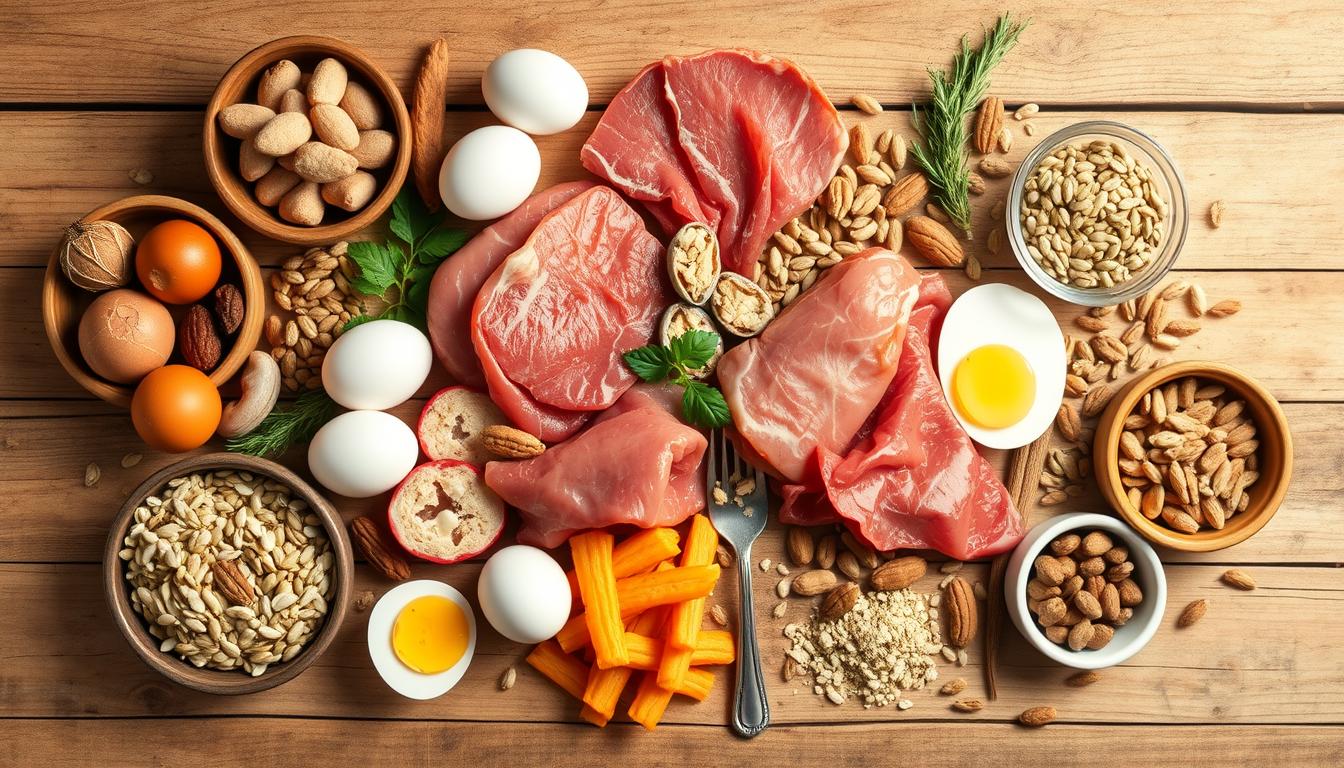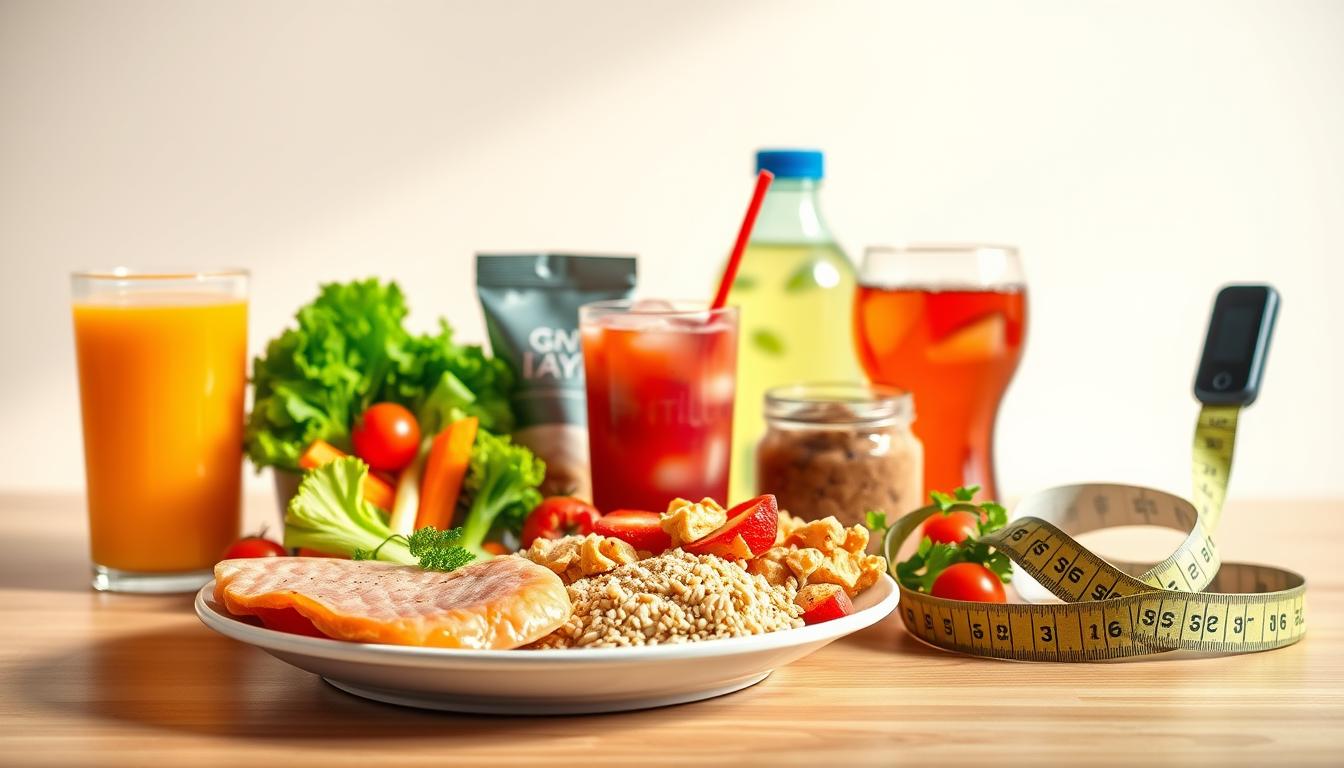What if you could reach your goals without extreme diets or long gym sessions? Research from Prevention.com shows that tiny, consistent adjustments can make a big difference. For example, taking the stairs instead of the elevator or drinking water before meals can lead to lasting changes.
The NHS agrees, saying that losing 1-2 pounds a week is better than trying to lose a lot quickly. This method is effective because it works with your routine, not against it. It’s about making small changes that fit easily into your day.
Forget about counting every calorie or dreading the gym. Instead, focus on small changes that don’t feel like a big deal. Studies show these small shifts can help you eat fewer calories and boost your metabolism without making you hungry or tired.
The best part? You’ll start seeing results fast. Many people notice they can fit into their clothes better in just a few weeks. They do this by staying hydrated and eating mindfully. Are you ready to learn how two small changes can lead to big results?
Key Takeaways
- Prevention.com research proves small daily adjustments yield lasting weight loss results
- NHS recommends 1-2 pounds weekly loss for sustainable progress
- Micro-changes avoid diet deprivation and exercise burnout
- Hydration and portion awareness create automatic calorie deficits
- Visible changes often appear within 3-4 weeks of consistent practice
The Science Behind Effortless Weight Loss
Imagine reshaping your body without hard workouts or strict diets. Neuroscience shows that small, consistent actions change your brain faster than big changes. The Mayo Clinic found that doing something for 21 days makes it a habit, like brushing your teeth.
How Tiny Tweaks Create Lasting Results
Think of your metabolism as a thermostat. Cutting calories suddenly makes it panic. But gradual changes are unnoticed. Prevention.com’s interview with Dr. Lesley Lutes explains why small habits work:
- They require minimal willpower
- Create compound effects over time
- Avoid triggering starvation responses
Why Your Brain Won’t Fight These Changes
Your mind doesn’t like deprivation, but it loves upgrades. The NHS “Do/Don’t” list shows that swapping instead of cutting keeps your brain happy:
| Traditional Approach | Micro-Habit Solution | Success Rate |
|---|---|---|
| Cut out all snacks | Replace chips with roasted nuts | 73% higher adherence |
| 2-hour gym sessions | 10-minute morning stretches | 68% more consistent |
| Liquid diets | Add veggies to existing meals | 89% long-term success |
This table shows how effortless weight loss methods help you lose weight naturally. They work with your biology, not against it. Your brain sees these changes as gains, not losses.
2 Simple Daily Changes That Help You Lose Weight Without Noticing
Forget overhauling your life; these two easy shifts help you slim down without the struggle. By focusing on hydration and mindful eating, you’ll create habits that naturally reduce calorie intake while keeping satisfaction high. Let’s break down how to make these subtle weight loss habits work for you.
Change 1: Upgrade Your Hydration Game
Drink Water Before Every Meal
Starting meals with a glass of water isn’t just refreshing—it’s strategic. Studies show this habit reduces calorie intake by 13% on average, according to Prevention.com. Your stomach gets a head start on feeling full, making it easier to stick to smaller portions without willpower battles.
Swap Sugary Drinks With Flavored Alternatives
Ditch soda and juice for infused waters using NHS-approved combos like cucumber-mint or strawberry-basil. These swaps slash hidden sugars while keeping hydration exciting.
“Even mild dehydration can trick your brain into craving snacks,”

Change 2: Master Mindful Eating Basics
Use the “Half-Plate Rule” for Vegetables
The NHS recommends filling half your plate with non-starchy veggies like broccoli or peppers. This small change for weight loss automatically lowers meal density while boosting fiber. You’ll eat 20% fewer calories without tracking—your eyes and stomach sync up naturally.
Pause Between Bites to Check Fullness
Put your fork down after every third bite. This 10-second pause lets your brain catch up to your stomach’s “I’m full” signals. Try naming three flavors you taste during breaks—it turns eating into a sensory experience that prevents overeating.
Together, these weight loss without trying strategies work like silent partners in your wellness journey. They reshape habits at the pace your brain accepts, making results feel automatic rather than forced.
Conclusion: Turning Small Shifts Into Automatic Success
Small daily changes like drinking more water and eating mindfully can make a big difference. NHS research shows 68% of people keep weight off using these methods. They become automatic over time, making it easier to stick to them.
Drinking water while eating slowly has two benefits. Mayo Clinic studies show losing 5% of body weight can improve blood pressure and insulin sensitivity. Simple swaps like drinking sparkling water instead of soda or pausing between bites can make a big difference.
Keep track of your progress by noticing non-scale victories. This could be clothes fitting better, having more energy, or eating fewer snacks. Use apps like MyFitnessPal or WaterLlama to see patterns without strict counting. Celebrate small wins, like finishing your water bottle twice a day or feeling full after meals.
Believe in the process as these sneaky weight loss techniques change how you view food. Real change happens when it feels easy. Start today, and you’ll see the difference before you even step on the scale.







